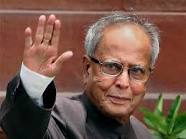
New Delhi, October 4: The ceremonial office of the President is set to get a little less stuffy. Pranab Mukherjee is actually insisting that organizers of functions and government functionaries skip the use of honorifics like "Your Excellency" and "Hon'ble" for the President. Instead, Rashtrapati Bhawan is asking them to keep it simple: just "Shri".
This, of course, has a spin-off — what do lesser dignitaries like governors and ministers be addressed as? While that's still being mulled, the President's Office is in the process of reviewing the existing protocol. An indicator of the shape of things to come was a recent change in the invitation card issued for the convocation at Darbhanga's Lalit Narayan Mithila University in which the words "excellency" and "hon'ble" were replaced by "shri" while referring to the President and the Bihar governor.
An advertisement issued by the university also prefixed 'Shri' in front of Mukherjee's name instead of the high-falutin colonial forms of address. Responding to a query, President's press secretary Venu Rajamony said, "A review of the President's protocol is underway. This is in conformity with the way in which things are being done since President Mukherjee took over."
Rashtrapati Bhawan officials clarified that these changes would be for domestic functions/advertisements. But when Mukherjee is sharing the dias with foreign monarchs or ambassadors who are routinely addressed as "His Royal Highness" or "His Imperial Highness" or "Your Excellency", the Indian head of state won't be found wanting: he, too, will be addressed by decorative and high-sounding honorifics.
The toning down of lofty titles by the Rashtrapati Bhawan is in keeping with the trend of replacing earlier princely titles with just VVIP or VIP.
Will Mukherjee's healthy example catch on? Will it also lead to the PM, cabinet ministers and governors also opting for more down-to-earth forms of address? Sources in the government are betting on that it will.






Comments
Add new comment